These Blue Light Blocking Glasses Are the Solution to Screen Time
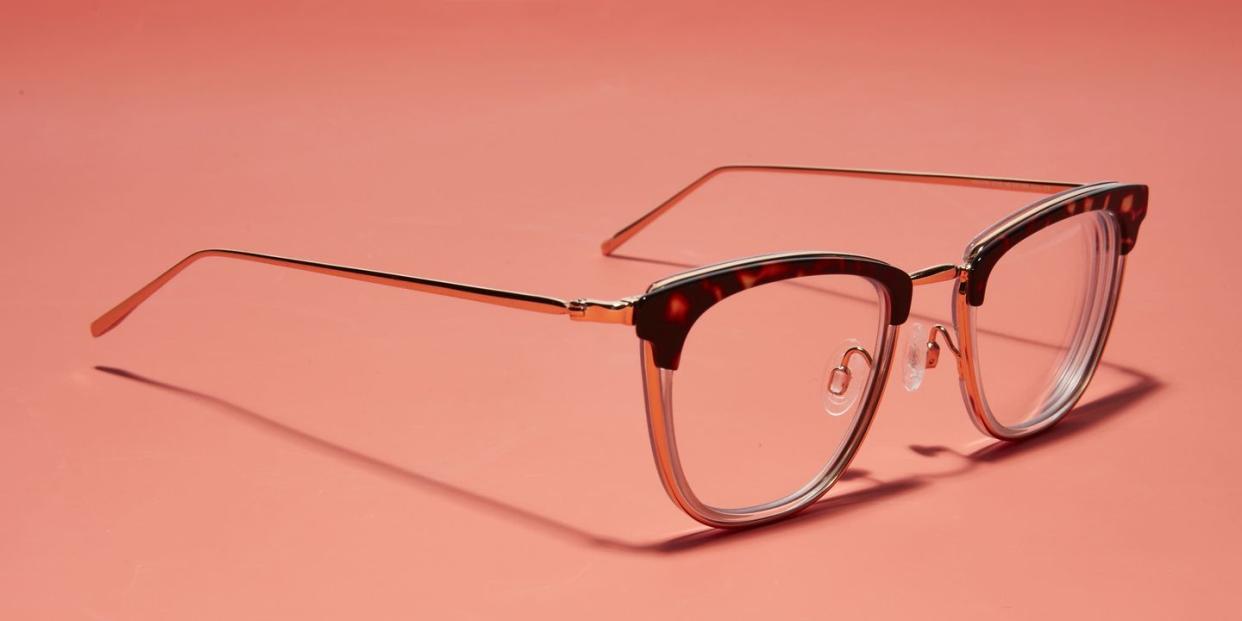
Even if you're pretty good about keeping your recreational screen time down to a minimum—like, one scroll through Instagram per day, rather than 15—the average office worker still spends about 1,700 hours per year in front of a computer screen. That's about 1,700 reasons why your eyes might be driving you insane.
But imagine having a magical coating on the lenses of your glasses that can reduce eye-strain and actually help you sleep better. That's pretty much exactly what it's like to wear blue light lenses.
Over the last year, blue light lenses have become so popular that New York City-based eyeglasses startup Warby Parker started offering the option to add the coating to nearly all of its glasses after demand from customers peaked. The company, known for its online shopping portal that lets customers easily customize and order prescription lenses and frames, tacks an extra $50 onto the final cost if blue light filters are added.
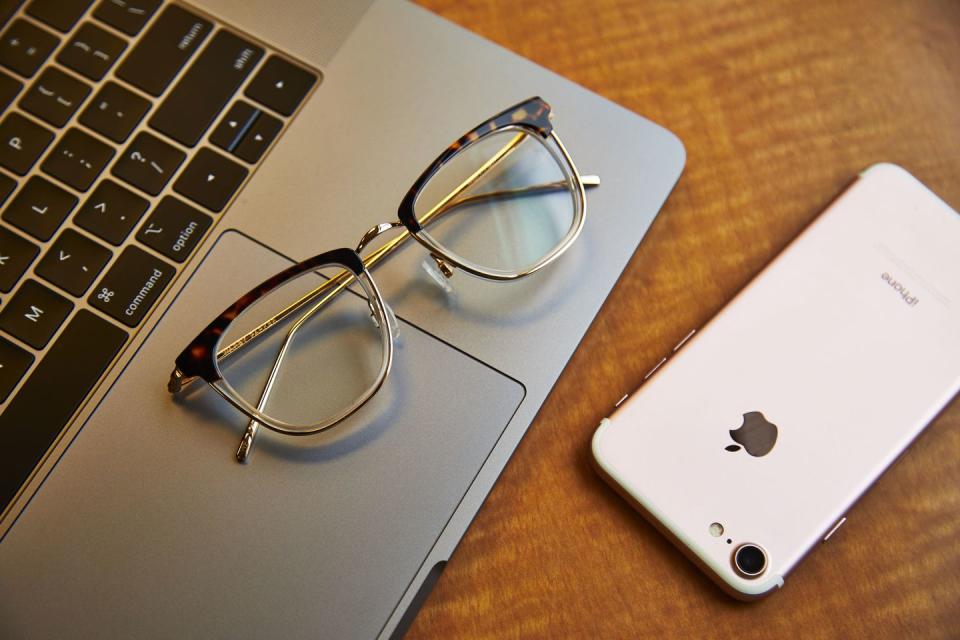
These so-called "computer glasses" have come a seriously long way from the terrible orange lenses that preceded them. Now there are enough manufacturers that offer blue light reflective coatings that you can grab pretty much any style that you like.
Warby Parker is careful to note that the decision to offer blue light lenses was not based on any hard scientific evidence from research papers or the like; they maintain that there is still no solid evidence to prove that blue light lenses really do anything. But we did some testing of our own to see if blue light filtering lenses live up to the hype.
How We Tested Them
I have been wearing blue light lenses from Warby Parker in the "Devon" frames (no longer available) since the first week of October and, anecdotally, I can say that across that six-week span, I've gone to bed about an hour earlier each weeknight, on average, and that the number of headaches I've experienced has decreased to nearly zero, all other things constant.

Throughout testing, I wore the glasses from 8 a.m. to 10 p.m. (if I could stay awake that long, that is). As a journalist, I'm on the computer most of the day, writing, editing and researching. Meanwhile, my MacBook is set to the highest brightness levels to help compensate for my poor vision, which usually leads to dry, tired eyes by just 3:00 p.m.
As a control test, I logged how many hours per day I spent on my phone for a week before trying the blue light lenses, the time I fell asleep each night and any other notes about headaches or eye strain. Before and during testing, I switched off my blue light filter on my phone, which tints the screen yellowish before bed. That way, I could make sure any positive effects were due to the glasses, not the filter.
What Exactly Are Blue Light Lenses?
Blue light lenses—also called blue light blocking or filtering lenses—do pretty much exactly what their name suggests: squeeze out the blue light that your eyes are normally exposed to each day, especially on the computer or on a smartphone.
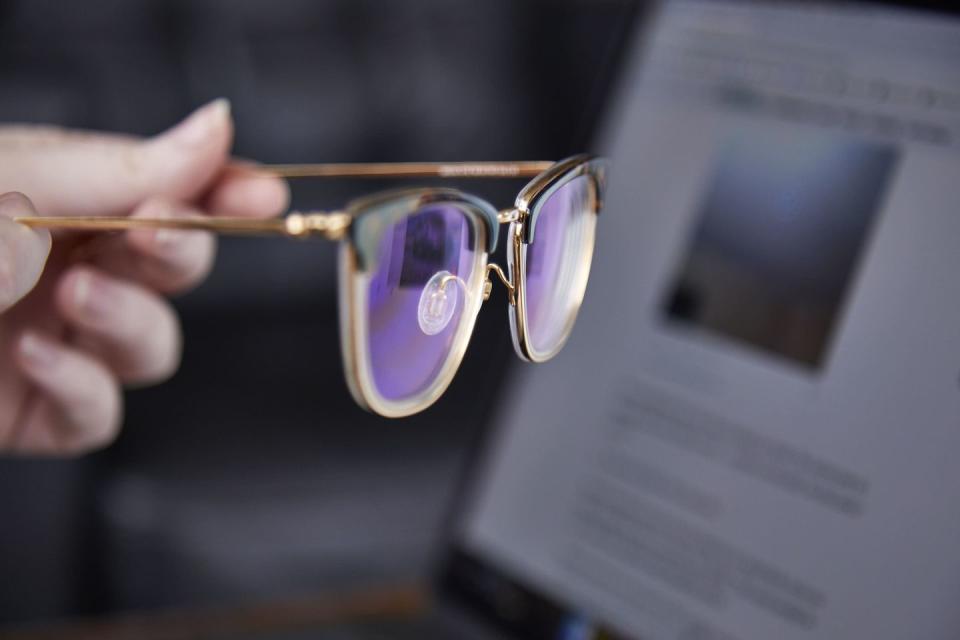
Despite the name, blue light lenses are actually more yellow-orange in hue. That makes sense, given that blue is complementary to orange in color theory, meaning it's opposite on the color wheel. The lenses mask blue light that would otherwise filter though to your eyes.
Wearing the lenses is not as jarring as you'd think. Setting the glasses down against a white surface, it's possible to see a slight yellow-orange tint to the lenses, but it's not very noticeable if you aren't looking for it. Sometimes, blue light lenses cast a warm, sunny hue onto everything you look at, though manufacturers and designers have gotten much better at reducing this effect. The Warby Parker lenses I tested definitely had a slight yellowing effect while I wore them, as intended, but virtually as soon as you stop thinking about it, you stop noticing it.
What the Science Says
There's not exactly a wealth of data on blue light lenses and if they deliver on their promises because there is not yet a clear consensus on whether or not blue light is damaging to the eyes.
A 2015 study published in the Journal of Adolescent Health found that, compared to clear lenses, blue light blockers "significantly attenuated LED-induced melatonin suppression in the evening and decreased vigilant attention and subjective alertness before bedtime" in teenage boys.
Adam Gordon, O.D., clinical associate professor at the University of Alabama at Birmingham School of Optometry, said that the overexposure to blue light can lead to eyestrain and focusing issues, but will not lead to long-term damage of the retina.
"Lens manufacturers have jumped on the band wagon of harmful blue light and are creating products that they claim will protect your eyes from macular degeneration or other eye diseases," he told the university's public relations office. "Blue light more often causes eye discomfort and annoyance than physical harm. It is important to understand what blue light is, where the accusations of hazard and threat of blue light come from, and how it truly affects your vision."
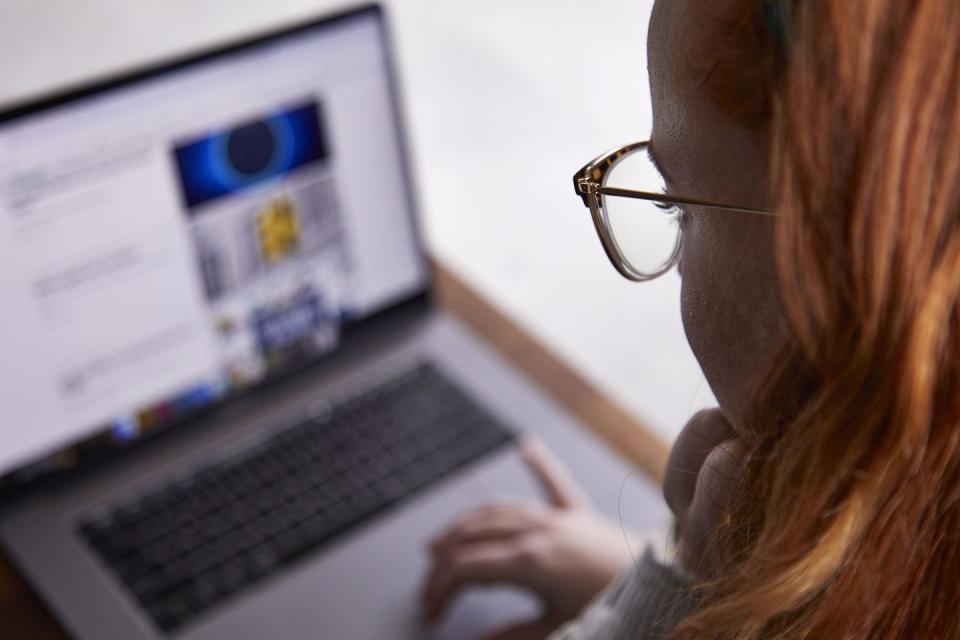
According to a study of the existing research on blue light lenses, published in the journal Ophthalmic & Physiological Optics, there is no direct evidence that using blue light blocking lenses will improve any quality of your health:
We find a lack of high quality evidence to support using BB spectacle lenses for the general population to improve visual performance or sleep quality, alleviate eye fatigue or conserve macular health.
However, there is a body of research on blue light's negative impacts on the body, particularly with respect to the production of melatonin, a hormone that regulates the body's sleeping and waking cycles.
Harvard Medical School notes that blue wavelengths—which are beneficial during daylight hours because they boost attention, reaction times, and mood—are disruptive at night. Not only do electronic devices emit blue light, but so do energy-saving LED light bulbs (you may have noticed that these often give off a brighter white light rather than a warm, yellow light).
While the sun emits blue light that helps regulate our circadian rhythms, keeping us awake during daylight, these artificial sources of light can be switched on at any time of day and potentially disrupt our regular sleeping schedules. In an experiment, Harvard researchers tested subjects that were exposed to green light for 6.5 hours, and then blue light for the same amount of time. The blue light suppressed melatonin production for twice as long as green light and shifted circadian rhythms by twice as much.
Our Verdict
While testing Warby Parker's blue light lenses, I ended up logging close to an extra hour's worth of sleep each night, on average. Some nights, I'd get sleepy before 9:30 p.m. and turn in even before finishing whatever I was watching on Netflix, which is not something I'd normally do. Of course, there were some nights that I stayed up later, too, but the overall average across six weeks showed an improvement in my bedtime. The average time I went to sleep before testing was closer to 11:00 p.m.
I also found that it was easier to get through the workday without grabbing eyedrops, like I sometimes do. While I did still get a little bit of that 2:00 crash, it seemed to have more to do with carb-crashes than eye-strain.
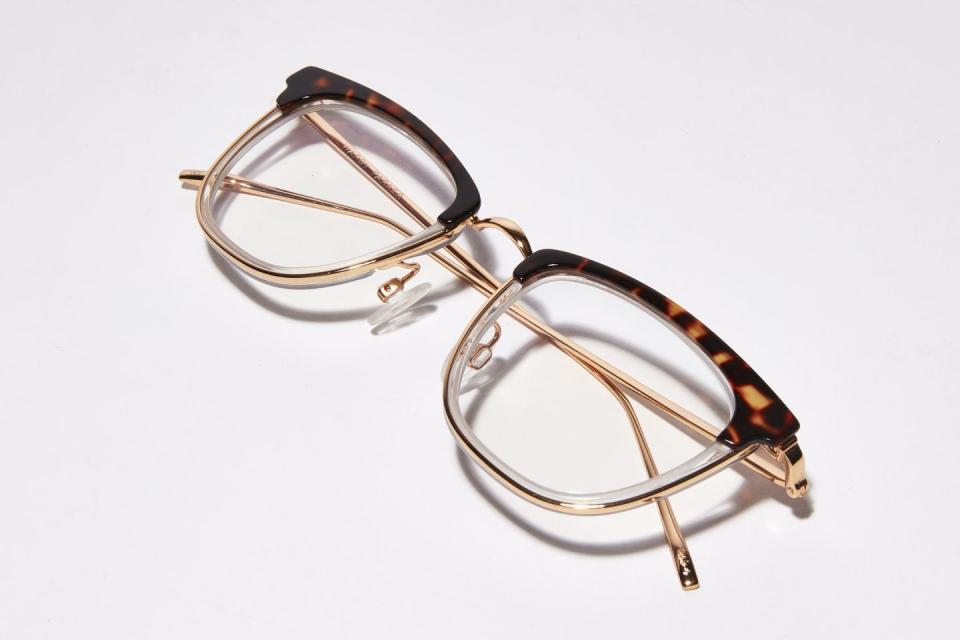
As far as headaches go, I did not notice any drastic improvement. Perhaps this is because blue light lenses don't really help with the strain on eye muscles, or perhaps the benefit of blue light lenses is outweighed by the new pressure behind my ears from the frames resting on my head.
Overall, I felt that my quality of sleep was about the same, but that my ability to fall asleep was improved. Outside of that, I didn't notice any drastic results. It's also possible that my falling asleep was impacted by the placebo effect, but even still, I liked getting the sleep.
Despite the lack of clinical evidence, I recommend Warby Parker blue light lenses for folks who have trouble feeling sleepy when they're ready to go to bed, especially if you use electronic devices like a smartphone, TV or laptop frequently before bed. If you are looking for a killer solution to headaches or migraines, this is still an option, but you may want to try a cheaper option (like these Nectar frames for $45 or these Felix Gray ones for $95), just in case the lenses don't end up helping; I didn't find that they helped much for that purpose.
And if all else fails? Well, the Warby lenses still work with your prescription (one of the main reasons we suggest this company's lenses) and the others are still a fashion statement. It's up to you how much money you're willing to gamble with.
You Might Also Like

